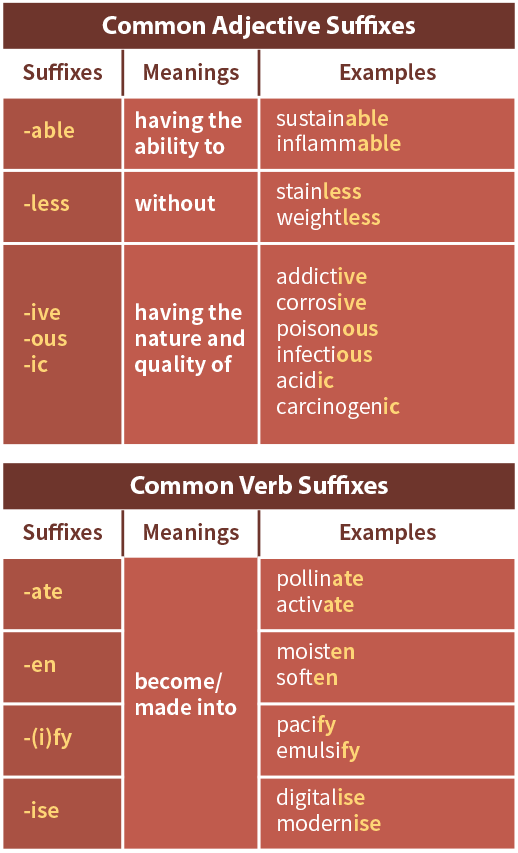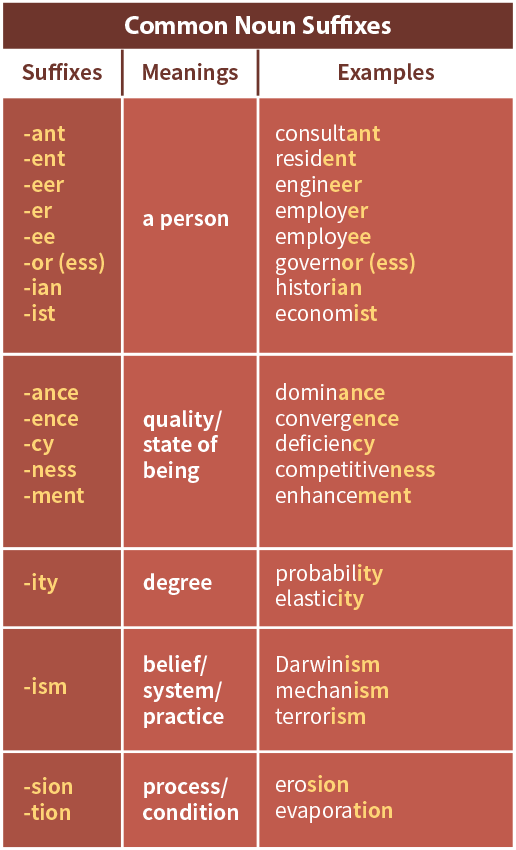Home > Chapter 2: Academic Vocabulary
2c: Word Formation
We often come across new words or technical terms in different subjects. An awareness of word formation processes enables us to work out the meaning of unfamiliar words in academic contexts.
This part will introduce the following common word formation processes:
i) affixation (prefixes and suffixes)
ii) compounding
iii) clipping
iv) blending
v) borrowing (loan words)
i) Affixation
Affixation is the most common way of making new words in English. An affix is a word element which can be added to alter the meaning or form of a root word. It usually comes in the form of either a prefix (which is put before the root word) or a suffix (which is put after the root word). The diagram below helps to illustrate this:

A suffix is a word element added to the end of the root word to convey extra meaning. It often changes the part of speech of the root word too. The table below shows some suffixes commonly seen in academic contexts and their meanings.


This part will introduce the following common word formation processes:
i) affixation (prefixes and suffixes)
ii) compounding
iii) clipping
iv) blending
v) borrowing (loan words)
i) Affixation
Affixation is the most common way of making new words in English. An affix is a word element which can be added to alter the meaning or form of a root word. It usually comes in the form of either a prefix (which is put before the root word) or a suffix (which is put after the root word). The diagram below helps to illustrate this:

A suffix is a word element added to the end of the root word to convey extra meaning. It often changes the part of speech of the root word too. The table below shows some suffixes commonly seen in academic contexts and their meanings.


 Activity 5
Activity 5
Add a suitable suffix to each of the following words to form a new word. The new word should fit the part of speech and meaning given. Put your answers in the spaces provided.
| Root Words | Words with a Suffix | |||
| Meanings | Answers | |||
| 1. | vegetable (n.) | a person who does not eat meat (n.) |
 
|
|
| 2. | accessible (adj.) | the degree or quality of being easy to reach (n.) |
 
|
|
| 3. | broad (adj.) | to make wider (v.) |
 
|
|
| 4. | intense (adj.) | to make more intense (v.) |
 
|
|
| 5. | condense (v.) | the process of changing from gas into liquid (n.) |
 
|
|
| 6. | consumer (n.) | a belief that happiness comes from purchasing material goods (n.) |
 
|
|
| 7. | resist (v.) | the ability to withstand a force (n.) |
 
|
|
| 8. | enhance (v.) | the state of being better / the process of improving (n.) |
 
|
|


